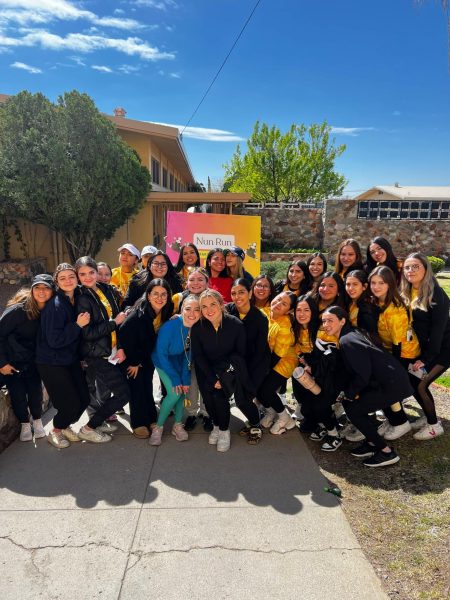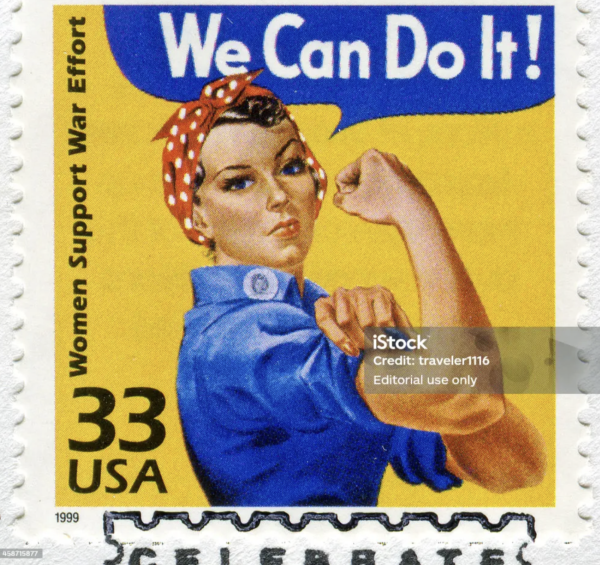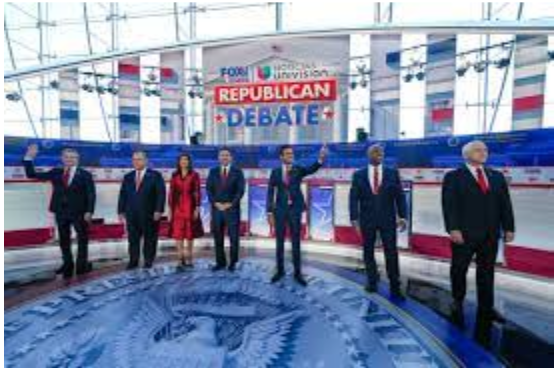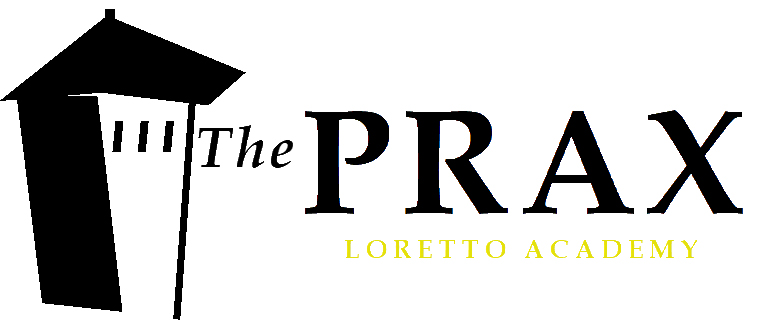Upcoming 2020 presidential race: Who’s who?
February 7, 2020
As the first term of the current U.S. President Donald Trump draws to a close and the next presidential election looms on the horizon, it’s important to know who’s who in the lineup of potential candidates.
After the controversial 2016 election of Republican Donald Trump shook the country, many Democrats have chosen to run for the presidency in order to challenge the conservative policies and rhetoric he has laid out during his first term.
The word many is not an overstatement — according to The New York Times, 28 Democrats in total have run for the 2020 presidency, although 16 have now dropped out as it stands.
That leaves 11 Democratic candidates still in the running less than a year before the November election.
However, only six of them as it stands now are qualified to participate in the next Democratic debate held on February 7 in New Hampshire.
Who are these six candidates, and what are their policy stances?
The first candidate is Joe Biden, former vice president under Barack Obama and one of the most notable figures running for the president.
On Biden’s website, he calls for the following: protecting the bargaining rights of unions, increasing the minimum wage to $15, protecting Medicare, taking action against fossil fuel companies to reduce climate change, and reforming the criminal justice system.
The second candidate is Pete Buttigieg, the youngest candidate and former mayor of South Bend, Indiana who has focused his campaign around bridging the gap between the different generations of Americans.
According to his website, he advocates for the following: a Green New Deal to combat climate change, protecting consumers’ rights to their data, reducing incarceration rates, abolishing the electoral college, and restructuring the Supreme Court.
The third candidate is Amy Klobuchar, a senator from Minnesota who first gained national attention for her questioning of Brett Kavanaugh during his Supreme Court confirmation hearings.
According to her website, her stances on crucial policy issues are as follows: in favor of universal healthcare, in shared prosperity and economic justice, in the Green New Deal, and making campaign funding more transparent.
The fourth candidate is Bernie Sanders, a senator from Vermont who is another of the most notable figures running for president in 2020 after he ran for president in 2016 on a platform advocating socialist beliefs.
According to his website, Sanders advocates for Medicare for all, free college tuition, an expansion of Social Security, an increase of taxes on the 1 percent, and breaking up large corporate monopolies.
The fifth candidate is Tom Steyer, a billionaire philanthropist from New York who has not held any prior political offices, unlike his other competitors.
According to his website, his primary focuses are on fighting climate change through the promotion of renewable energy, providing universal healthcare, breaking down barriers to voting, and increasing wages.
The final Democratic candidate eligible for the next debate in February is Elizabeth Warren, a senator from Massachusetts and another of the strongest contenders for the 2020 presidency.
According to her website, her primary focus is on lifting up the middle class through an Ultra-Millionaire Tax, by forcing all lobbyists to publicly register their activities, fighting for a Green New Deal, and ensuring equal justice under the law.
Things are much simpler yet also more controversial on the Republican side of the competition.
Only three Republican candidates are in the running: Donald Trump, Joe Walsh, and William Weld.
However, the recent impeachment of Trump in December 2019 and the progressing trial for his removal may throw a wrench in his plans to run for a second term; furthermore, very little media attention has been given to his competitors.
Joe Walsh is a former congressman from Illinois and a conservative radio host.
According to his website, he advocates for the following: protecting the Second Amendment, strengthening border security, limiting government interference in the economy, and limiting welfare fraud.
The third Republican candidate, William Weld, is a former governor of Massachusetts.
According to his website, his primary focuses are decreasing government spending, protecting the right to bear arms, expanding the work visa program as part of immigration reform, and strengthening foreign trade.
As of January 2020, a total of 14 Democratic and Republican candidates remain for this year’s presidential election.
No matter which party you choose to endorse, remember that it is our civic duty to go out and vote as members of a democracy that thrives on political participation.
Our voices will help determine the future of our nation and the people we choose to lead and represent it.













